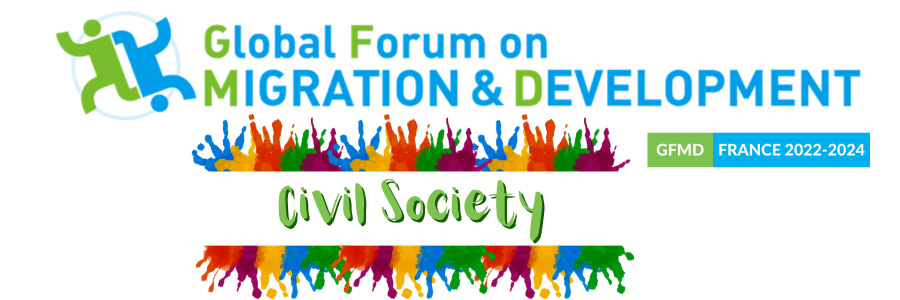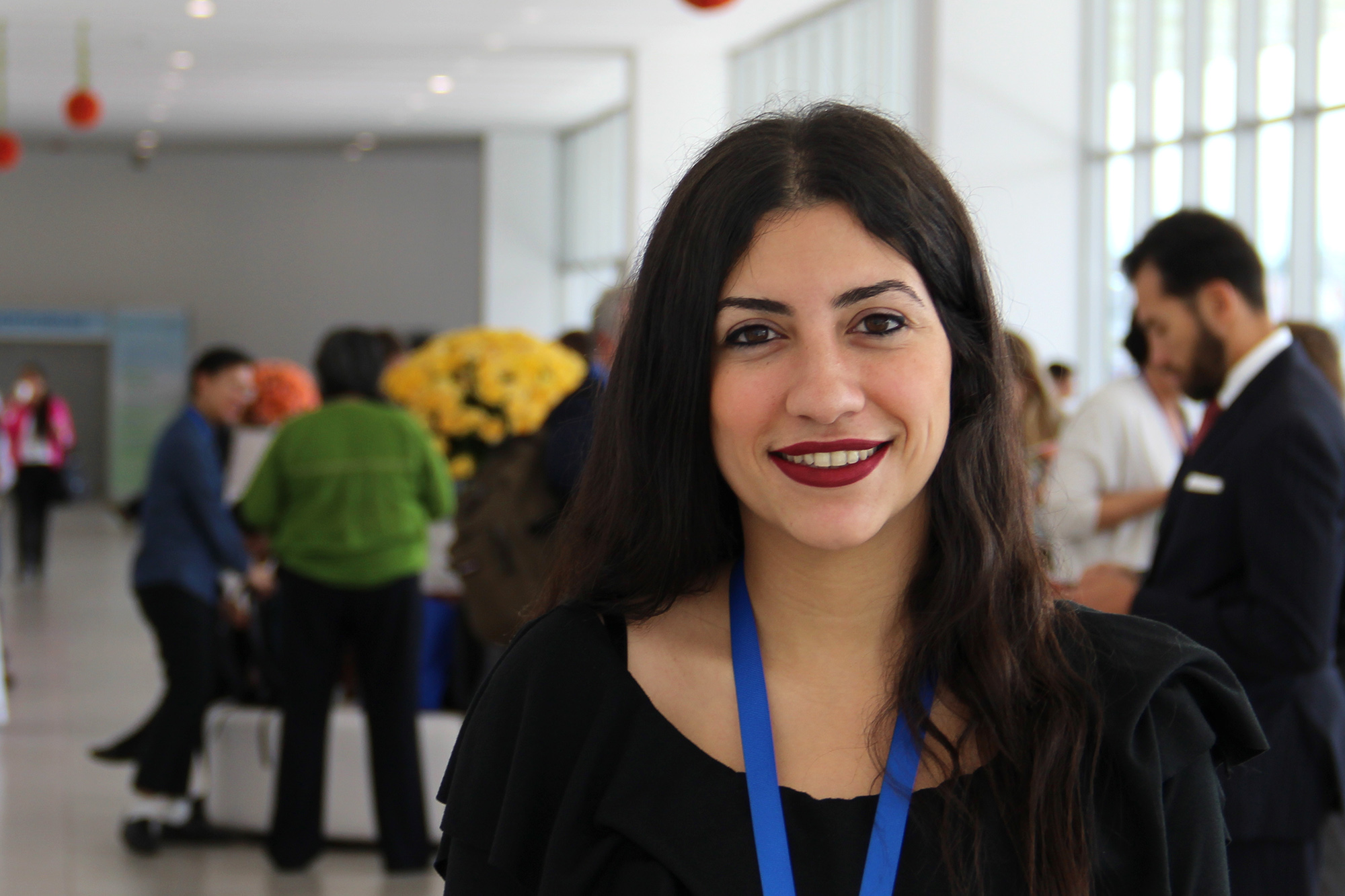Lara Ibrahim works for the Gozour Foundation for Development in Cairo, Egypt, providing life and professional skills and vocational trainings to refugees, asylum-seekers and economic migrants of different nationalities (Syrians, Eritreans, Ethiopians, South Sudanese, Iraqis, Yemenis and others). The organization aims at their formal – and successful – insertion into the Egyptian labor market.
During the Global Forum on Migration and Development’s Quito Summit, Ms. Ibrahim discussed the challenges of migration in Egypt and the participation of Egyptian civil society in the GFMD.
What are the most important migration-related issues in Egypt?
[Lara Ibrahim] One of the biggest challenges – and one that is not limited to Egypt but affects the broader Middle East region – is mixed migration. This is something that we have been discussing here at the GFMD Summit and the problem is that, unfortunately, many countries in the world do not really address the issue other than by criminalizing migrants. There are many migrants or refugees who come in an irregular way because there are not enough regular pathways to move, so people become ‘criminals’ just for crossing a border.
This of course has all kinds of repercussions, not just in terms of potentially being deported, but also in accessing services within the country. People do not have the required documentation, so they cannot access services.
I believe that this points to an even bigger problem, which is the lack of regular pathways. I think that we, as civil society, should work on changing the whole narrative and on how we can contribute to creating regular and accessible pathways. Migration is a topic that is often viewed in a ‘security’ framework and not many countries have made positive steps to open up regular pathways. How can my government and the governments in my region make more regular pathways accessible so that people don’t have to come irregularly?
How do you see society reacting to these challenges?
We see many different reactions. The most worrying, I believe, are the ones that end up as racism and xenophobia. This happens because people assume that migrants and refugees are taking their jobs and are a burden to the economy. It is also because Egypt has been going through difficult economic times. So the situation has not been easy.
However, if you spread awareness about migrants and refugees – who they are, why they came, etc. – this can change. We can share numbers and statistics: for example, when they started to arrive in 2013, many Syrian refugees opened businesses, employed Egyptians and contributed hugely to the economy. In this regard, it is also important to partner up with the media, to present the full picture and make it clear that migrants and refugees are not a burden.
I do understand that migration is not everyone’s cup of tea, but at the same time, I think it’s a really big, big problem if civil society does not engage with the host community. So this is what we’re trying to do. Whenever we have a project, we always try to include the host community and many civil society organizations do the same. That way, the host community can become aware of migrants and refugees, their stories and their sufferings, of how they arrived in Egypt and also of the fact that many didn’t really choose to come but were forced to leave their countries.
On the other hand, we need to be realistic and understand that some people did want to come and that migration can also be a choice. It is hard to convince people of the benefits of migration. It can help to remind them that migration is contributing to our economy and is not a burden. At the end of the day, we should remember that 10 million Egyptians live abroad. We’re not just a receiving country; we’re also a country of origin.
What is civil society doing to address this challenge?
Civil society is acting along many different lines. First of all, we try as much as possible to guarantee access to services, especially basic services like healthcare or education, regardless of the migrants’ status.
We also carry out advocacy with the government, especially on how to regularize and improve the regularization of migrants. In Egypt, bureaucratic processes take so long that even people who enter the country regularly may lose their regular status while they wait for a residency permit.
We are discussing how to speed up this process and make it less bureaucratic and less centralized. To avoid people becoming irregular because of bureaucracy, we are also advocating residency permits of longer duration.
What is the importance of the GFMD for Egyptian civil society organizations?
The GFMD is very important because, as we keep on saying, migration is not the responsibility of a single country. There is no one country, not even one civil society organization which can handle the issue of migration by themselves.
Attending the Civil Society Day is also very interesting because we hear common challenges. Sometimes when you work on the ground, you think that you’re the only one encountering a certain issue, but actually it is something common to many countries and this is good to hear. It is also great to hear success stories, about good practices and lessons learned. Although we all come from different contexts, we all face more or less similar challenges and it’s helpful to understand this as a starting point for collaboration.
The dialogues between civil society, governments and the private sector are also very useful examples of how we can advance the role of partnerships. Indeed, my main takeaway this year is the importance of partnerships. That, and the role of local authorities. If we look more at the role of cities, I believe there are great opportunities for civil society to partner up and induce change.
How has the adoption of the Global Compact for Migration affected your work?
Well, quite honestly, civil society in Egypt has not been very aware of the GCM. However, since the organization I work for is part of a regional organization, the Cross Regional Center for Migrants and Refugees, we have conducted workshops with civil society organizations on what the GCM is, how to implement it and how it can help advance the migration agenda in Egypt.
The government of Egypt has also started to work on the GCM – for example on providing migrants, refugees and asylum-seekers with access to some services – and we’re very happy that Egypt is taking the lead in the GCM regional review process.
Together with other NGOs, we’ve also developed a list of recommendations and a sort of national implementation plan. There’s still a long way to go, but I think we have taken good steps and even the governorates in the border region are now aware of the GCM. Until the regional review in 2020, we will brainstorm as civil society on how we can be involved in the GCM’s implementation. So overall, 2019 has been a year of raising awareness while 2020 will be a year of action.
However, we should always remember that the GCM is a process and that it relies heavily on partnerships. Just as migration cannot be handled by one single country, it cannot be handled by a single actor either.
The GCM’s implementation should involve everyone: civil society, governments, migrant organizations, the business sector. It’s not just about reaching the objectives; it’s equally about the whole process and the whole approach.

